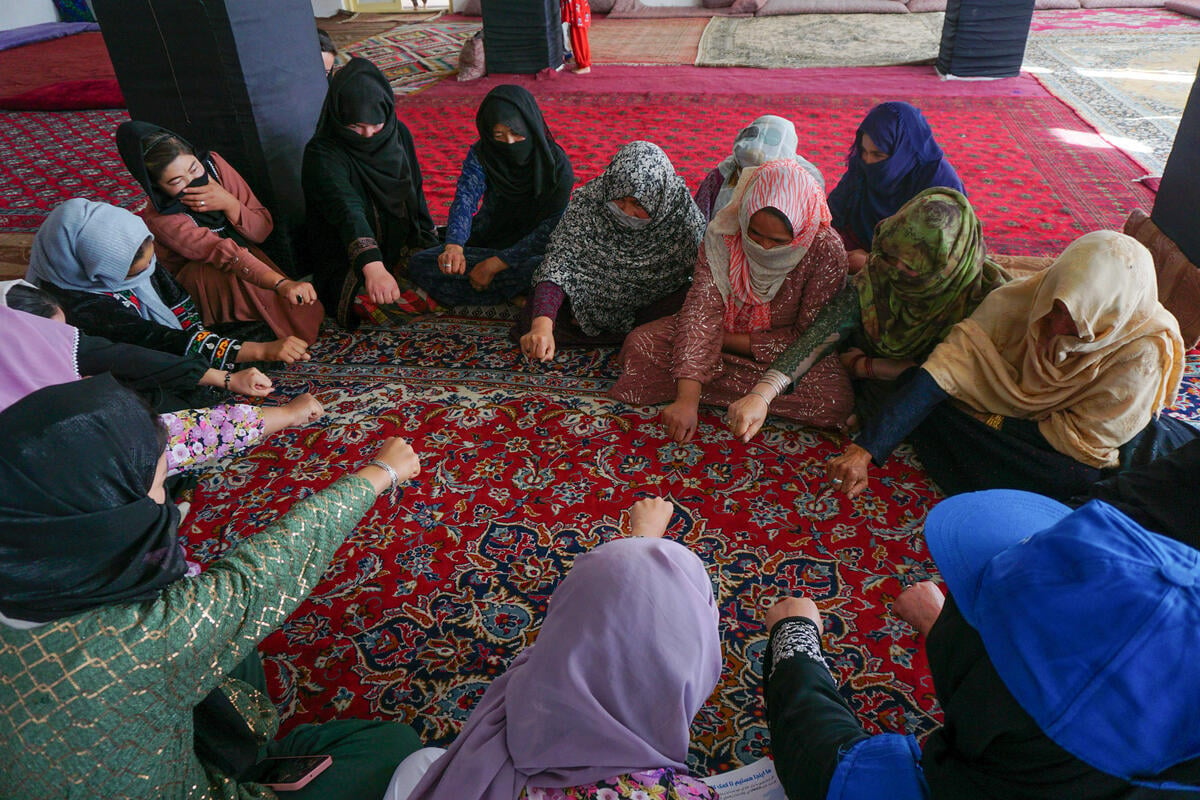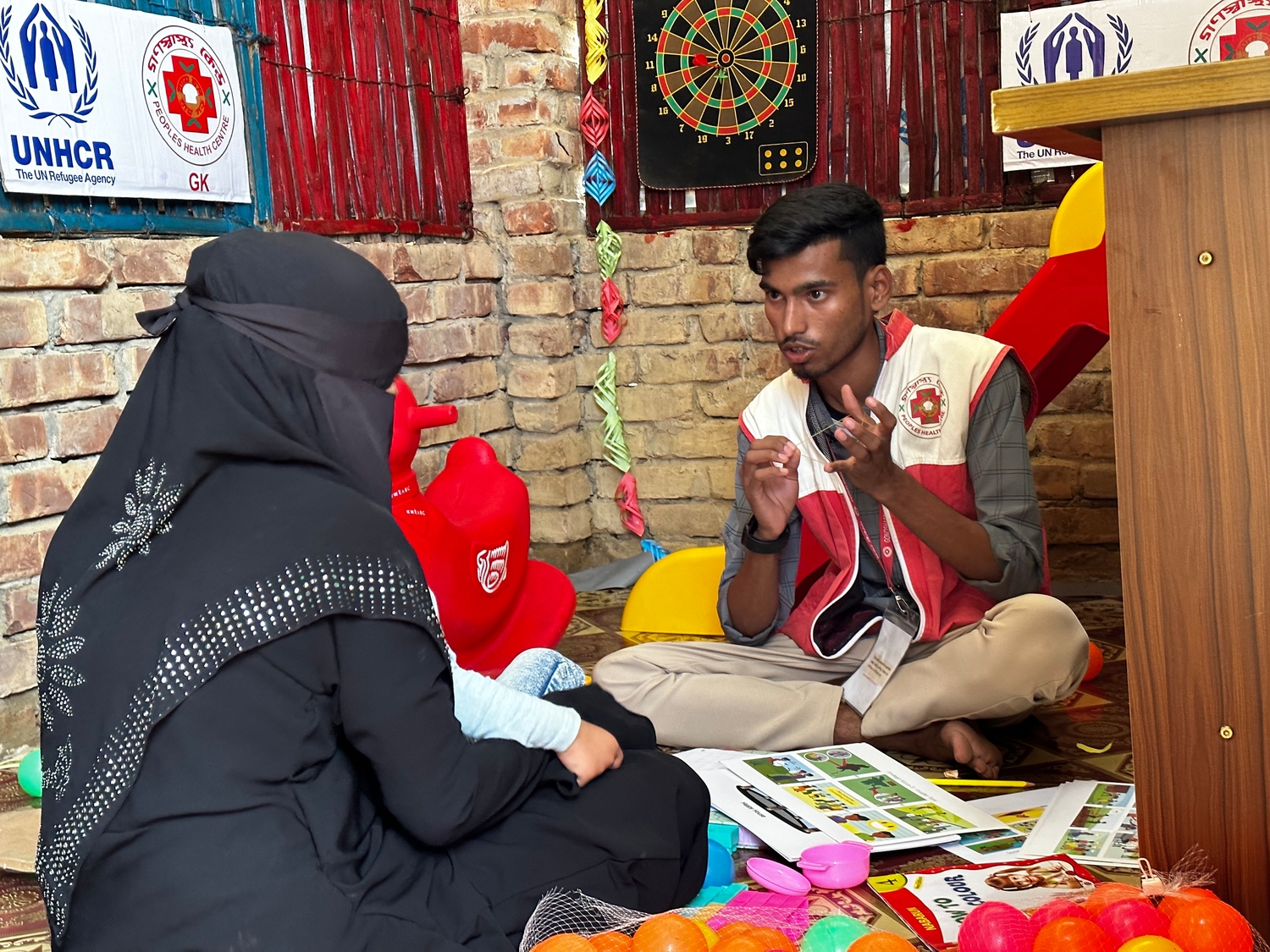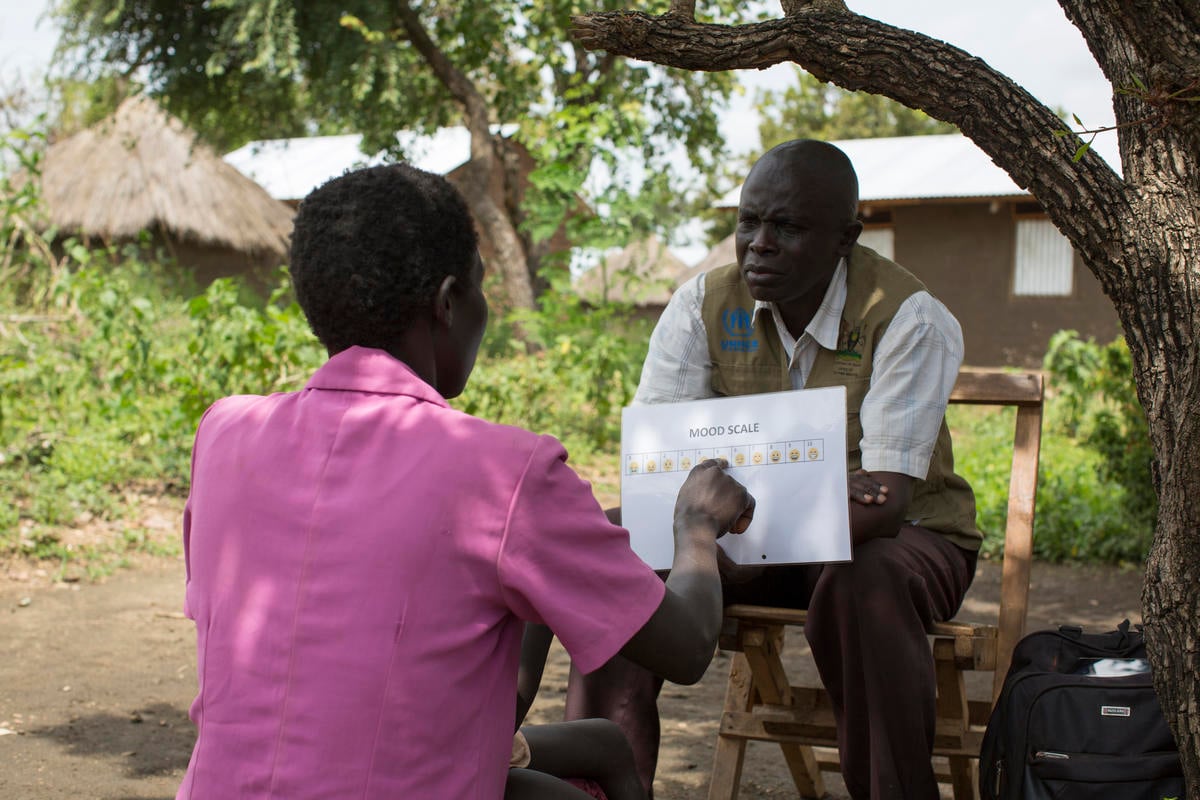Despite record displacement in 2017, UNHCR notes public health gains

Despite record displacement in 2017, UNHCR notes public health gains
When Rohingya refugee Nur Jahan's three year-old-daughter Amina fell sick with fever and a stomach upset, she brought her to a primary health clinic in this sprawling settlement in southeast Bangladesh for immediate treatment.
"It is a terrific help for us to have a clinic nearby that we can access anytime we need it," says Nur, at the facility supported by UNHCR, the UN Refugee Agency, which is open 24 hours a day.
Despite record displacement last year that topped 68.5 million people, UNHCR marked some key gains in public health care to the benefit of millions of people like Nur uprooted by wars and persecution worldwide.
The UNHCR Public Health 2017 Annual Global Overview found that the number of clinical consultations provided during the year for displaced men, women and children in the 21 countries studied rose 10 per cent from the previous year to over 8 million.
"If there was no service like this, we might have suffered."
A key marker of public health impact in emergencies such as the Rohingya crisis in Bangladesh is the mortality rate for under-fives. Despite major emergencies and disease outbreaks, this rate remained globally stable at 0.4 deaths per 1,000 every month, sustaining the declining trend observed since 2011.
"If there was no service like this, we might have suffered," said Nur, as she waited at Gnashashtya Health Clinic, a facility open to all in southeast Bangladesh, which is home to nearly one million Rohingya refugees who escaped violence in neighbouring Myanmar.
The Global Overview notes that the leading cause of under-five deaths was watery diarrhoea. In just one instance of effective treatment, Amina was treated promptly for her upset stomach and went back to the family’s home in the settlement.
During the year, UNHCR and its partners successfully contributed to the management of multiple outbreaks around the world, including cholera in Kenya, Uganda, and Sudan, malaria in Uganda and measles in Angola and Bangladesh.
Other outbreaks treated included diphtheria -- in the densely populated refugee settlements in south-eastern Bangladesh where refugees live in tightly packed bamboo-framed shacks -- as well as typhoid in Rwanda and monkey pox in the Democratic Republic of the Congo.
Mental health studies have found that the large majority of refugees respond with “normal distress” to being uprooted from their homes by persecution and violence, although a smaller proportion present mild or moderate forms of mental problems.
The Global Overview found that, as a result of the improved availability of mental health consultations at primary health care clinics, there was a two-fold increase during 2017 in the number of mental health consultations compared to three years ago.
Since 2015, in partnership with the War Trauma Foundation UNHCR has organized trainings for mental health care capacity building in various countries including Algeria, Bangladesh, Cameroon, Chad, Republic of Congo, Democratic Republic of Congo, Ethiopia, Kenya, Tanzania and Uganda.
Most mental health consultations were related to epilepsy and seizures – 46 per cent - and for severe mental disorders such as psychosis and bipolar disorder. The percentage of people seen for common mental disorders such as depression, anxiety, post-traumatic stress disorder and other psychological complaints remains low – 27 per cent - compared with the expected prevalence of these conditions.

Over the course of the year, UNHCR reported further gains in the rate of measles vaccination coverage among children under one year old. Overall, more than 160,000 children in this age group were vaccinated against measles in routine programmes, a 15-per-cent increase from 2016.
In 2017, about half a million pregnant women attended antenatal services at the 135 monitored sites in 21 operations, an 18 per cent increase from 2016. Nine out of 10 deliveries were conducted by a skilled health worker, a 25-per-cent increase from 2016.
Continued high levels of anaemia, as well as persistently high levels of stunting and global acute malnutrition remain extremely concerning amid reductions in refugee food rations and basic assistance in several operations. Overall, 62 per cent of the surveyed refugee sites met the global acute malnutrition standards, a slight improvement from 2016.
Access to HIV treatment was sustained with more than 10,000 cases enrolled in HIV treatment programmes.
Access to clean water and sanitation are vital to preserving public health. UNHCR managed to maintain the average volume of water provided to people of concerns at 21 litres per person per day globally. The average number of people per toilet improved to 22.
This exceeded the basic minimum standard for sanitation. However, UNHCR did not always meet the standards in emergency or protracted situations.













